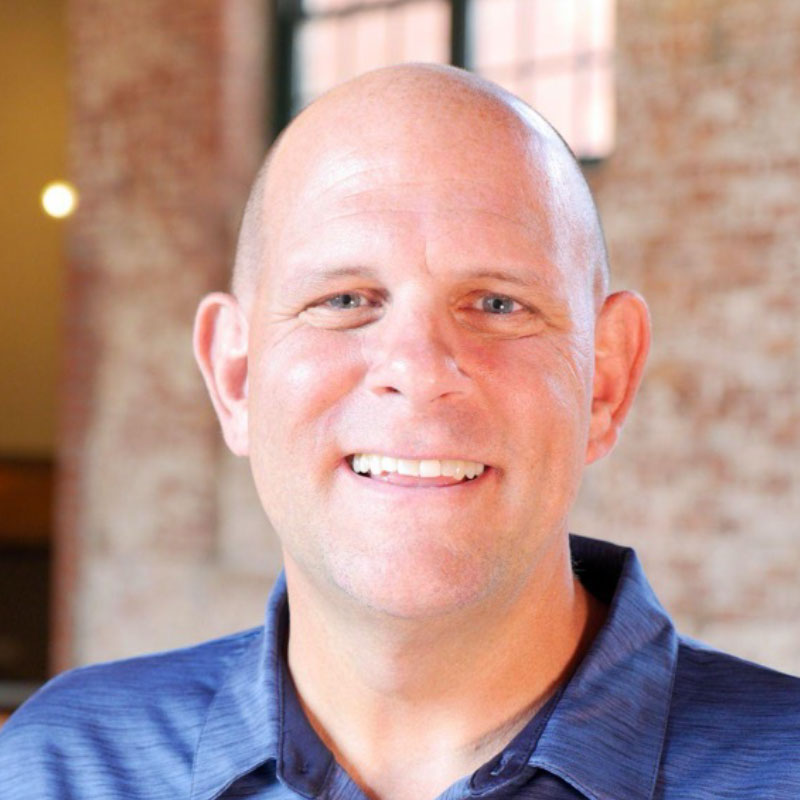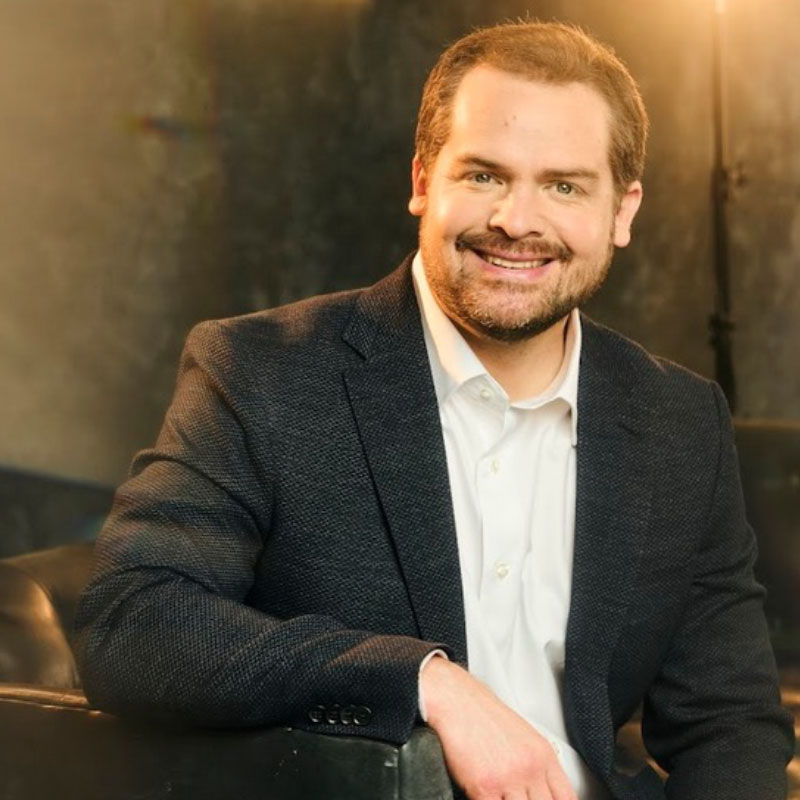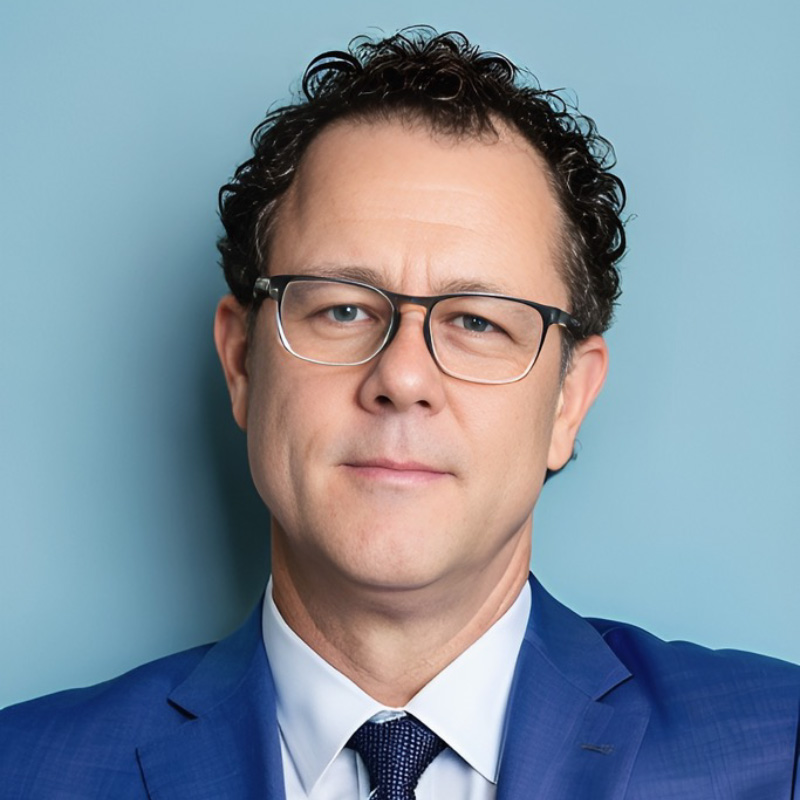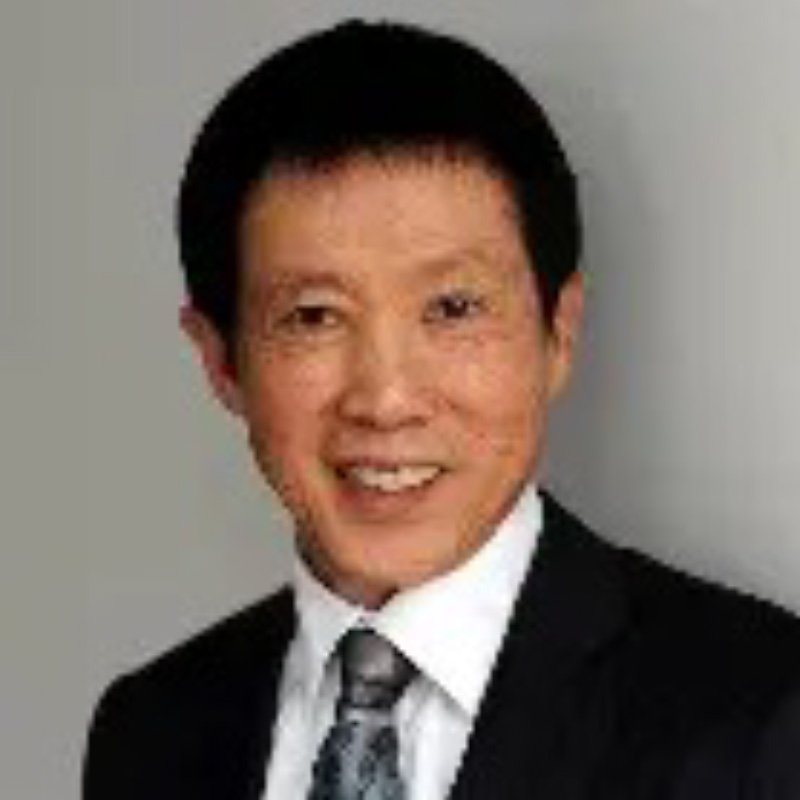#071
Share This:

In this episode of The Matt Feret Show, I interview author, speaker, and stress management expert Don Joseph Goewey to discuss stress, performance, and mindfulness. Don has years of experience teaching high pressure professionals how to manage stress and optimize their performance. He shares his perspective on the mindsets, attitudes, and habits that contribute to stress and how to change them. We also discuss the role spirituality and mindfulness have in stress management and how they relate to greater enlightenment (Hint: It’s simpler than you think!). Finally, we discuss Don’s book, The End of Stress.
If you enjoyed this episode of The Matt Feret Show, you may also enjoy:
Listen to the episode on Apple Podcasts, Spotify, Deezer, Podcast Addict, Stitcher, Google Podcasts, Amazon Music, Alexa Flash Briefing, iHeart, Acast or on your favorite podcast platform. You can watch the interview on YouTube here.
Brought to you by Prepare for Medicare – The Insider’s Guide book series. Sign up for the Prepare for Medicare Newsletter, an exclusive subscription-only newsletter that delivers the inside scoop to help you stay up-to-date with your Medicare insurance coverage, highlight Medicare news you can use, and reminders for important dates throughout the year. When you sign up, you’ll immediately gain access to seven FREE Medicare checklists.
Quotes:
‘If our capacity to be happy and at peace and ultimately fulfilled with things exactly as they are is tied to what the world is doing, we're going to go up and down and we're going to live a life that's at the mercy of circumstances. And so if we don't want that, if we want to live a relatively stress-free life, we need to find ways of transcending that.”
“It's not a lot of fun to get in touch with negative feelings. And so people suppress them one way or another. And so the prescription is, don't do that. Allow them, get in touch with them. They won't destroy you. Get to know them. In one way, you're really making friends with them. And in another way, you're gaining control, awareness, what you're aware of, you begin to control what you're unaware of, and continue to control you. You can't change something that you don't see. So awareness allows you to see and feel what's going on inside of you that sabotages your happiness, that sabotages your confidence and the negativity, the upset, the pessimism, the aggression, the over competitiveness, the shame, the unworthiness, all of that. It's all fear-based. And as you make an unconscious pattern conscious, it begins to dissolve.”
“The irony is that when you detach from the material world and this idea that happiness is coming from the material world, as you pursue success, you actually enjoy the process more. That old tension drops away. That fear of failure drops away. Then when you believe your self-worth and your peace of mind and your happiness depend on the outcome. So if you succeed, great. If you fail, well, you've learned something. You've learned something from the failure because you're not allowing the failure or the success to define who you ultimately are.”
#071
Selected Link from the Episode:
Host’s Links:
All Things Medicare: prepareformedicare.com
Decoding Social Security: prepareforsocialsecurity.com
My Written Works on Amazon: www.amazon.com/stores/Matt-Feret/author/B09FM3L4WW
The Matt Feret Show YouTube: www.youtube.com/@themattferetshow
Network with me on LinkedIn: http://www.linkedin.com/in/mattferet
Follow me on X: twitter.com/feret_matt
See behind the scenes on Instagram: www.instagram.com/matt_feret/
Join our community on Facebook: www.facebook.com/themattferetshow/
Guest’s Links:
Don Joseph Goewey’s Book: https://theendofstressbook.com/
LinkedIn: https://www.linkedin.com/in/proattitude/
X: https://x.com/TheEndofStress
Facebook: https://www.facebook.com/booksbygoewey/
Full Show Transcript:
Announcer:
This episode of The Matt Feret Show is brought to you by the Brickhouse Agency. Brickhouse is a boutique independent health insurance agency that focuses on finding the right Medicare coverage for folks across the country. Matt's wife, Niki, is the heart behind Brickhouse. She's great at making confusing things clear and is passionate about helping people find a Medicare insurance policy that suits their individual needs. To schedule a free one-on-one appointment with Niki or a member of her team, head on over to brickhouseagency.com or simply call (844-844-6565), and someone will help you schedule a phone call or a Zoom meeting. The consultation is free because the insurance companies pay Brickhouse, not you. There's never any pressure or obligation to enroll. Your clearer, simpler Medicare journey is just a call or click away. brickhouse agency.com. Not affiliated with or endorsed by the government or federal Medicare program. Contacting Brickhouse Agency LLC will direct you to a licensed insurance agent.
Introduction to Don Joseph Goewey and Stress with Matt Feret [1:09]
Matt Feret:
Hello everyone. This is Matt Feret, author of Prepare for Medicare and Prepare for Social Security Insider's, guidebooks, and online course training series. Welcome to another episode of The Matt Feret Show, where I interview insiders and experts to help light a path to successful living in midlife retirement and beyond. Don, welcome to the show.
Don Joseph Goewey:
Well, thank you for having me.
Matt Feret:
Tell everybody what you do, how long you've been doing it, and how you help people.
Don Joseph Goewey:
Well, I write books. I've written two books on stress. I'm working on a third one. And I consult with corporations, usually pretty big corporations, Fortune 500 ones, to help people deal with the stress with high pressure work environments. There isn't really any way to bring the pressure down, but there certainly is a way in which we can change the way we relate to it and relate to demands and relate to each other that mitigate a lot of the stress that we experience. That stress is not happening to them as much as it's happening within them. And there's a shift that they're capable of making. And the character by and large of that shift is a spiritual one. And I mean spiritual in a very practical way. I don't mean it in any religious way, but it is a spiritual shift. If you think of what is the opposite of stress, it would be peace to be at peace, to be calm. So that's the shift we work towards.
Matt Feret:
Wow, I love this topic. And I love the fact that you've written books and you train people on how to do this. So I'm really glad you're on the show, but let's just start with, work stress. Much has been written about stress and its impact to your health, not only mental health, but physical health too. I don't know, maybe the color of your hair. Mine seems to be a little bit grayer every month or so. To your weight. I mean, let's start there. When you have stress, or process stress in a certain way, or you're in a stressful environment, what happens to your brain and what happens to your body?
Don Joseph Goewey:
What happens to your brain if you're chronically stressed? By chronically stressed, it may mean what around 75% to 80% of people experience, which is three or four pretty bad stressful days a week. And what that does is that you get locked into a kind of stress autopilot. So your brain’s fear centers hijack the higher brain, the prefrontal cortex, where your intelligence resides, where your creativity resides, where your capacity to meet a challenge, meet a problem, and move through it with a kind of can-do attitude that mitigates a lot of the stress that you would've experienced otherwise. Well, when that happens and it's happening chronically, what happens in your brain is your brain starts releasing stress hormones and stress hormones are very toxic to the brain and to the body, and also they're very toxic to your emotional state.
They lock you into negative emotionality is one of the things that they do. If it's going on chronically, it will expand that part of the brain. It's called the amygdala, the brain’s fear center, to expand those networks at the same time, shrinking the higher brain networks in which now you've become locked into becoming habitually stressed as you meet a problem. And once you get pulled into it, it's hard for you to pull yourself out of it. And so one of the ways in which the other things that it does for you, to answer your question, is it does that to your brain and into your body. Those stress hormones, particularly adrenaline, amps up your cardiovascular system. And so over a period of time, it damages your cardiovascular system. And one of the things that a stress reaction is doing in a real and present danger is it's shutting down a whole number of long-term systems like your immune system, like your healing system to grab that energy and power you for about five minutes to deal with a bear that just walked into your campsite.
Or when you get into a car accident, you get amped way, way, way up because of these stress hormones. Well, that happens to a lesser degree when you get an email that sets you off or your boss comes in and adds something to your overburdened to-do list those kinds of things. Or you come home, and you find the letter from the IRS in your mailbox. Things are happening to us all the time that have the potential to create a stress reaction within us. And so when that happens, the system floods, it shuts down the immune system. So now your immunity is compromised, it impacts your cardiovascular system, leads to high blood pressure, you're more likely to have a stroke. And the other thing it does is that it affects your chromosomes. There's a cap at the end of your chromosome called the telomere, and stress hormones are toxic to it.
They're like Clorox on it, and it caused it to unravel. So, it's like you have a shoelace that has a cap at the end of it, and when that cap comes off the shoe lace shreds and that's what happens to your chromosomes and they start putting out abnormal cells. And so that's why when you see a person who's been stressed for a very long time like those before and after pictures of the President of the United States, it's because they've been so stressed. Their DNA is no longer functioning properly, and it's not putting out the cells that allow them to recover when they're wounded or loud or to deal with natural aging. So what ends up happening is that we prematurely age faster, and that leads to cancer because putting on abnormal cells, well, that's a whole lot of bad consequences from stress. And so the point is, is that stress isn't something you should someday do something about.
It's a critical issue in your life. And the other problem I have with stress is we take it home and children are very sensitive to it. They pick up on it and it sets off their stress response system. You get accounts from kids where they can tell by the sound of dad's footsteps as he comes up the walkway to come home, that he's had a heavy day and the way he comes into the house, there's kind of heaviness to him or the way mom is sort of not really able to relate lovingly when they get picked up at school or at the daycare center, that kind of thing. It affects family life and it affects marriages, people who are chronically stressed. There's a lot of conflict that goes on in marriages that the research shows. So that's a lot of things we need to cope with and try to change so we can start living a fulfilling life and we're capable of living a fulfilling life.
How to Recognize Chronic Stress with Don Joseph Goewey [09:21]
Matt Feret:
That was worth its weight in gold. You did mention something in here that spurned a question in my mind. I can acknowledge if you get into a car accident or you get a letter in the mail from the IRS or something happens, I personally can feel that stress is going right. I don't know if it's fight or flight, but my adrenaline's going up. I'm hyper aware. I know what's happening in a dangerous situation. I get that. What I don't understand is how to recognize chronic stress.
How do people recognize whether or not they're chronically stressed? I mean, you hear people say, gosh, it's so stressful at work, or I'm so stressed at work and I've found that may mean different things to different people. One is I'm working so hard and so many hours. Well, I guess that can be stress or they have tight deadlines that they can't miss or else, and that can be a type of stress I'd imagine. But how do you recognize if you're chronically stressed? Is it only when you go get a back massage and the masseuse says, “My word, you have a lot of stress.” And you go, “Do I? I don't even know.” How do you know if this is affecting your life?
Don Joseph Goewey:
Well, you begin to recognize certain signs and symptoms of it. You can take a stress test. You go to my website, it's called theendofstressbook.com, and on there is the gold standard of stress tests. It's only 10 questions, and it's called the Perceived Stress Scale. It was invented by a guy named Shelton, and it's the one most used in research when they go in and they want to research people and they want to see how stressed they are and that kind of thing. That's the test they use. And it takes 10 minutes, and you'll get a score and it'll tell you if your blood pressure is going up. And there's all kinds of emotional signs that can tune you in.
You find yourself asking yourself, why don't I feel happier? Why don't I feel more fulfilled in my work life? Why do I still feel so insecure and worry over whether I'm winning people's approval or not? Why am I still struggling with family problems? And what can make it feel really empty is the realization that whatever success, however well you might be doing, whatever success you might've attained so far that you're beginning to recognize it's not coming with a sense of fulfillment, is what Tony Robbins, the great success coach, came to the conclusion about after coaching millionaires for decades, he came to the conclusion that success without fulfillment is the ultimate failure because it's failing at life. It's failing at living. We were born happy, we were born beings of immeasurable worth. And yet it's really hard to find a person, a completely happy person if you do the research on it.
You look at the research and you do the math on it, it only turns out to be about 4% of the population that can say, I am a completely happy person. And again, we were born happy, we were born free, but we become trapped in limited thinking. We're born with a wonderfully open heart. Just look at children and you see that that's our nature, that this open heart that now stress and fears so easily. We're born really gifted beings of immeasurable worth, but we end up feeling like we're not good enough in so many ways. And it all maps back to the way we've been programmed by our society. Our society is stamped into us the belief that happiness and self-worth, which when you think of those are the polar opposite emotional states of stress is that we're told that those are found out there in the world.
And I measure myself in terms of how well I do in the world, how well I do at work. And we're told if we work really long and hard enough, we put our nose to the grindstone that happiness and fulfillment will eventually follow. And we've all swallowed that. You said your audience is in around their fifties. It's around fifties. People end up in a midlife crisis where they realize that success has come to whatever degree it's come, but it's come without that fulfillment. And that's again, failing at living and waking up is the realization that contrary to what the society has taught us, really nothing of the world can make us happy. And it's not that success is unimportant. I'm not saying that at all. But success is not the same as fulfillment. Fulfillment doesn't come from the world, and that's what that midlife crisis is about.
At first it's kind of devastatingly disappointing. And three out of four Americans end up in that state discovering that happiness didn't come from the world, not the radiant happiness of a child that's constant, that makes you smile for no reason that happiness comes from within you. You got to find your way back to it. And the truth is, there really isn't a single moment in a human being's life when they really don't have everything they need to be happy. And the only reason we're ever unhappy is because focusing on what we don't have rather than what we have, there's a tremendous power that comes from counting your blessings. So that's what we need to do. And so if some of what I'm saying is ringing true to you, you're getting a glimpse of that. You need to take a look at your stress level and you need to begin to use whatever method works for you.
The methods are very simple, but you need a method. You bring that stress into awareness, you detect it, you don't push through it, you don't ignore it, you let it come up. And biologically, the truth about stress is that, and it's, it's those two things. Your stress, the stress response system in your brain doesn't get activated unless some form of fear is present. And through the way in which we've been programmed, one of the major fears of people in our country is the fear of failing. And we will double down every time to avoid that fear of failure. And what we do in the process is we bring down upon ourselves all these unfortunate consequences that I just described physiologically, emotionally and socially in terms of your family and that sort of thing. So that's what you need to do is you need to get in touch with, become keenly aware of what's going on, get in touch with those negative feelings that stress produces and process them. And that's what I teach people. I teach how to do that. How do you get in touch with those and how you process your way to the other end.
Matt Feret:
It's such a hard thing to pin down at times because I'm kind of thinking back to the old Maslow's hierarchy of needs, right? You've got fear when you don't have any money and maybe you're having children or maybe you've got a new job, but you're paycheck to paycheck and you're supposed to be doing all these other financial things, right? You're supposed to be maxing out your 401k and contributing your IRA and donating to church or charity and all these rules. And when you don't have money or you're just eking by, I think that gives people a lot of long-term fear. Not the kind of car accident fear, but the long-term feel in their personal lives regardless of the stress they get at their work. And then as you move and progress through life, hopefully you get to put a little away, you get to own a home if that's what you want to do, and you get to save your kids' college and then you get through this place of empty nester, and then you may or may not have that midlife crisis in your forties, fifties, sixties, early sixties, somewhere in there, however you define midlife.
And then you're supposed to get to this magical place called retirement where we do nothing, which is when there it's supposed to be stress-free, do what we want. That seems to be a pretty depressing way to go about life if you think about it, when you could have not done all that stress or not experienced or internalized all that stress from that start to this somehow exhale that we all think we're going to get when we retire, right?
Don Joseph Goewey:
Yes. Well, everything you described there is the orientation. We all have been socialized into which in orientation on the external world, we let the external world, what's going on in the external world define our state of mind, our emotional state. And so it's kind of a pathetic existence. So if the numbers in our bank account, the numbers in our metrics, our sales quota, whatever you want to call it, if the numbers are okay or the objective stuff that we are trying to hold together is all okay, then people say, then I can be happy. But it's a really precarious happiness. It's a really precarious piece because this is a very mercurial world, and at any moment, you're flying high in April and you're shot down in May, and we all know that's the name of the game, that the world doesn't necessarily bend in our direction.
And so if our capacity to be happy and at peace and ultimately fulfilled with things exactly as they are is tied to what the world is doing, we're going to go up and down and we're going to live a life that's at the mercy of circumstances. And so if we don't want that, if we want to live a relatively stress-free life, we need to find ways of transcending that. And one of the false beliefs that we're programmed with it surrounds a thing called attachments. The Buddhist said, the source of all suffering is attachments. And so what attachment is, it's the belief that without this person or this outcome or this possession or this change, whatever, I cannot be happy. And most people have really bought that hook, line and sinker. But I can show you people. I worked for a long time in a field called Death and Dying.
I worked during the AIDS epidemic with people who were dying from AIDS before it had a cure. I worked with people with cancer. I actually worked in the refugee camps in Croatia and Bosnia during that horrible genocidal war. And those people were tremendous teachers to me because they found happiness even there because part of the way in which they found it is that the situation that they were in was so dramatic that they had, that they had to face what was causing the psychological distress that they were under. And they came to recognize it was their fearful thinking, their pessimism and fearful thinking, and they had to engage it and look at it.
I had a brain tumor once, and it was at a point in time that I had just gotten fired from a job and I had a wife of four kids, and I reached that point. I reached the bottom of the fear where I'd wake up every night in abject terror and look out the window and all I would see is a block hole about to swallow my family and me up hole. Finally, one night, one of those dark nights of the soul, I asked myself what was worse, the tentative prognosis, which at that point wasn't very happy, at least what the doctors were saying, or the abject fear that I was in every moment. And it was clear the abject fear was worse and it was creating a greater amount of suffering. My brain wasn't even hurting at that point, but my emotional state was incredibly painful.
And so I began to get in touch with those fearful thoughts that were generating that terror in me. And I began to ride it kind of like a surfer, rides a wave. And every time I did that, I ended up on shore, metaphorically speaking, and I ended up in a place where I was calmer. The more I did it, the calmer I got until I reached a place of peace. And out of that place of peace, what began to emerge in me was a little faith that was turned into a little optimism. And it ended up establishing for me the mind body connection that really helped me, really helped mitigate what some of the doctors were predicting. And I've seen that over and over again. My wife went to Burma and she went way out into the countryside, and there she went into a village. She was with a guided group, and she met a woman. And this woman by our standards had absolutely nothing. She was really thrilled. She had this little wireless thing where she could get her Buddha talks, that local Buddha monk would give a talk, and it would go over this. It would come through this crystal thing, and it was like a little tiny radio.
Matt Feret:
Like an old Crystal AM radio from back in the day?
Don Joseph Goewey:
Yeah, exactly. And this one, she could hook it up to a solar thing that energized it. And this was her prized possession because basically from her way of thinking, it brought Buddha into her home, but she virtually had nothing. I mean, she had a dirt floor, and my wife said she was one of the happiest, kindest, open-hearted person she had met in years. And so it's a false belief. I cannot be happy unless my 401k is in better shape. I cannot be happy until I'm out of debt. I cannot be happy until I lose weight. I cannot be happy until my boss appreciates me or I get that promotion. I always invite people, I make a list and put it right at the top, make a heading that says, I cannot be happy unless or until and start writing down. And you will realize that mentally you are delaying yourself from being happy for the rest of your life because of that list. You'll never reach it.
Matt Feret:
That's depressing. I mean, I do have a list. I think a lot of people have lists. You're telling me not to worry about my list, just throw the list away or just accept the fact I'm never going to reach it. That's a depressing thought. I mean, I have goals.
Don Joseph Goewey:
Well, the only reason you’re not going to reach it is it has nothing to do with your happiness. It's an illusion. You can be happy right now, but what you're focusing on with what that list is focusing on what you don't have. And of course, you're going to be miserable. And if you weren't actively making yourself miserable through that false belief, you'd be happy, you'd be stress-free. So yes, the list is depressing, but the good news is you can throw that out, that attachment. And you can wake yourself up to the truth that you are all right, you're not broken. You've just been programmed into believing things that aren't even true. We've been programmed to be a cog in the wheel. That's the way our culture works. And we've been programmed into seeing ourselves as less than right. My religious training really left me pretty afraid about who I was and where I was going to end up because they had its whole notion of original sin. We get programmed into an autopilot, our brains autopilot that is geared towards upsetting us. So when something the world isn't how it should be, somebody isn't how we think they should be, we are not getting what we want, we get upset and it's unnecessary.
The Relationship Between High Professional Performance and Stress with Don Joseph Goewey [28:35]
Matt Feret:
So can I go to work just for a second? And definitely I want to transition right back into tactical, practical things to do, how to recognize that you are what to do and how to learn this journey or learn to take these steps towards this journey of finding inner peace, not reacting to external stressors and say, this situation or this person stressed me out, but really taking it on yourself. I want to get there, but I want to go to an idea, but you talked about kind of a roundabout way. Can you be high performing and low stress? Because when people use the word stress at work, it's long hours, tough assignments, demanding bosses. We all live in a capitalistic society that rewards the worker. I mean capitalism 101, there’s owners and workers, and if you're earning a salary from somebody else, surprise, you're a worker. Even though you may have a little taste of a company stock somewhere in your benefits, you're a worker. And in that sense, the harder you work, you're encouraged to work harder, work longer, work faster to make more money, and this endless cycle of hard work, can you work hard or even be an entrepreneur and work hard and put in long hours and dedicate yourself to standing up these things and simultaneously not be stressed?
Don Joseph Goewey:
Yes, you can. The trick is attitude. So what I mean by that, as I said in the beginning, is that stress is happening in you far more than it's happening to you. And so there's two things about stress that you need to understand. And this comes straight from the landmark research that had been done over decades. And that is stress breaks down into two forms. There is what's called the stressor, and that can be any demand, any change that's put upon you the kinds of things that you were just talking about. And that's called the stressor. And stress is your perception that this demand or this change overwhelms your resources. And for most people, what they think of as resources is they think of as things outside themselves. They think of it is money, a team of people, equipment, those kinds of things.
They think of it externally or they think of it as time. And when we have this appraisal that this demand or this change that needs to be made overwhelm your resources, we have what's called a stress reaction. And that's where these stress hormones get dumped into the system. And so one of the resources that people underestimate to a large degree, I could tell your story about it, but is attitude. And it turns out that you can be stressed, but if your attitude is I can do this, I can not only achieve the quota that I'm being asked to achieve or accomplish the task that I've been asked to accomplish, I can not only do that, I can do it and preserve my wellbeing at the same time. So you have an added, that's your attitude. Your attitude is positive as you step into it.
And one of the ways in which you can fuel that can amp that up is you just simply remind yourself of the times that you did get through those things. And then you also try to recognize the times that it went to hell in a hand basket because you got fearful and you kind of freaked out and you got angry and resentful and all of those kinds of things played into it. But attitude is really powerful and the research has shown that. Then what happens, what they see with people is that that thing called stress is really energy. It's really some degree of cortisol and adrenaline released into your system, energizing you. And most people's attitude about when they're beginning to have a stress reaction to something, particularly when they're feeding it with negative thinking, how they begin to, the attitude they relate to that is, oh, this is terrible.
I can't be stressed. Oh, now I'm really in trouble. Now I'm stressed and now I'm not going to get anything done. Now I'm really going to get confused and overwhelmed. And this other attitude that I was telling you about when they find people opt in for that attitude, they don't release as many stress hormones. They find that with college students who go in to take major tests like MCAT tests to get into medical school, they do far better than those that don't make that shift in attitude to channel the challenge that they have. It is basically a shift in attitude from seeing the situation as a problem that could potentially overwhelm you to a challenge that you can move through creatively. And so that's where the answer yes comes from. There's a book out, oh, what is it called by a Stanford psychologist? I'm sorry I can't remember it off of hand. I think it's called the Good Side of Stress.
But you've got to be very clear that that's one good side of stress and it's attitude. It's your attitude, meeting stress with a really strong, positive, confident attitude and that you have to cultivate. But to be able to cultivate that first, what you have to do is you have to really be aware, as you were talking about, be aware of when stress and stressful, negative, fearful thinking is beginning to take over is beginning. You got about 90 seconds to move through it, and the way in which you move through it is through a process of awareness.
Matt Feret:
So this is the tactical and practical piece. So when I'm hit with a stressful situation, now is this episodic stress or is this just if I've had a stressful day or I've had a stressful week or a stressful month, and am I bifurcating that correctly? Individual episode versus low-level, mid-level, chronic stress?
Don Joseph Goewey:
Well, all of it boils down to meeting it at the moment. It raises the ugly head. You shifted at present moment or you don't. So that's where you're going to meet it. And part of what you're doing is you're kind of deprogramming yourself or you're getting really in touch with the way that you have been programmed, the way you and I have been put together to upset ourselves. If you take a look at the way we have been put together, the way we function, we find that inside this brain of eyes or this whole program, society stamped into it and wired right into the neuro circuitry of our brain, and it's a set of demands about, again, how the world should be, how we should be, how everybody around us should be. It's always insisting that its demands be met by life, by people, by you. And if the demands are met, your brain again allows you to feel some elation, some self-satisfaction, but it's always pretty short lived.
Matt Feret:
Always a lion in the grass, right?
Don Joseph Goewey:
Exactly. And in short, we've been trained to upset ourselves. So when other people don't live up to the way our brain is wired to have that expectation at torment with frustration, anger, bitterness, and when things aren't under.
Matt Feret:
It's just frustrating to think about that. I'm buying what you're putting down here. I see it and I agree with it. Go back into when you first realized that you have 90 seconds.
Don Joseph Goewey:
So what you want to do is you want to deprogram yourself from all of that, right? So you're beginning to see that things are getting away from you, they're out of control, and the future is looking uncertain. And your heart might be beating a little bit faster. Your palms might be sweating. You usually get physiological things. You might be feeling depressed, might be feeling disappointed. You might be feeling dissatisfied, might be feeling angry and afraid. Whatever it is, get in touch with those feelings. Let them up. What most people do is they repress them, they push them away, or they try to use some kind of spiritual practice to shift them into something positive. But the ticket is to be aware what you're aware of. You begin to control what you're unaware of is just going to control you.
Matt Feret:
I know you're the expert here, but this is some new stuff for me that I haven't heard. I know you've probably said this a bunch. This is the first time I'm hearing this, so let me slow that down for a second. So when I'm stressed and I feel it coming on, it's human inclination, or at least however it's programmed. You go after the chocolate, the booze, something to satiate that or to fix that stress level. And even you said some spirituality piece or meditation that's in and out of the news constantly. TMS been around for a while, right? You're saying there are salves or ointments to put on the stress, correct. However, that may not be the first thing you need to do. Did I hear that correctly?
Don Joseph Goewey:
You're right. Okay. I mean, it's a very good thing to meditate, but what some people do spiritually with it is they start saying positive affirmations and most of the time they're really not generating it. An emotional experience from those positive affirmations is changing their emotional state. They're using them to escape from the stress they're in, from the fear that they're in, from the unhappiness that they're feeling. It's not a lot of fun to get in touch with negative feelings. And so people do as a result is they suppress them one way or another. And so the prescription is don't do that. Allow them, get in touch with them. They won't destroy you. Get to know them in one way. You're really making friends with them. And in another way, you're gaining control, awareness, what you're aware of, you begin to control what you're unaware of, continues to control you.
You can't change something that you don't see. So awareness allows you to see and feel what's going on inside of you that sabotages your happiness, that sabotages your confidence and the negativity, the upset, the pessimism, the aggression, the over competitiveness, the shame, the unworthiness, all of that. It's all fear-based. And as you make an unconscious pattern conscious, it begins to dissolve. I mean, that's the whole thing of psychotherapy is all about. So the first thing you need to do is get in touch with those negative feelings that you're usually not aware of, that you tend to push away hurt feelings. All the feelings I just mentioned. Step back from it though as you do, it's kind of an interesting process. While it's like being in it but not of it, you're feeling fearful, for example, and that you can feel it in your body. You can feel it emotionally.
You can feel it shutting down your brain, however, which way you feel it and you surrender to that feeling, but you detach from it in a certain kind of way. It's almost like you're looking down on it from above as if you're maybe looking at a friend and you don't say, part of the process is not to say I am afraid, because that's identifying with an emotion and you are far greater than an emotion. It is much better to say fear is there right now. Depression is there right now. Resentment is there right now, whatever it is that's working you, it's there right now, but not I am resentful. Your brain is very literal, particularly the fear part, the amygdala part of your brain, very, very literal. And it gets activated when you say, I'm afraid or I'm agitated right now. It's responding to that, oh, he's agitated.
We better kick into survival mode. Something must be wrong because the problem with the amygdala is it's fully developed in a person by the age two, and it does not have the intelligence to distinguish between a real and present danger like a car accident or a bear in your camp and one that you're making up in your head that's a misperception of reality or an exaggeration, a catastrophizing of reality. Can't tell the difference between those two. So you step back from it all, you watch it, you're in it, but not of it. And the second thing is just to acknowledge that this stress reaction I'm having, this resentment I'm having, this fear I'm having. It's in me, not in reality. Reality is neutral, but it's our reaction to reality that makes it stressful.
Matt Feret:
Okay, so what if I have a lousy boss and my boss is stressing me out or my commute something that's outside that I feel like is impacting me. And I ask that with the full realization that there's a piece there. I think you've probably heard it said, no one can make you feel any way. You decide to feel that way based upon your reaction to what anybody's doing. Is there a little bit of that in there too?
Don Joseph Goewey:
There's a hundred percent of that in there. That's the truth. Once you see that, the truth of that, that you literally, you're making yourself miserable, you're making yourself happy, you're making yourself weaker, you're making yourself stronger. It's all happening within you. You have the power. And we have really been given a very poor instruction manual how to operate this thing called me the human being. It's sort of like if we had a stereo system and we got this manual and we start reading it, and it's what society told us is that you need to go out there and you need to work yourself into the ground and you need to come at it every single day. And eventually 50 years later, you will experience fulfillment and it'll be wonderful then, but don't be looking for it right away. And if you don't get fulfillment, it's your fault.
Matt Feret:
We did all we could for you. We paid you, we employed you, we gave you a market opportunity, it's your fault.
Don Joseph Goewey:
And we gave you a set of operating instructions that has you completely oriented for looking for yourself, for your worth, and for your fulfillment and happiness in an outside world where it doesn't exist. It is not in the nature of the world to make you happy. It's really more true to say it's in the nature of the world to give you problems. And then it's in the nature of your being to find a creative way of turning those problems into challenges that you meet and go beyond. Now. That's the game that we want to be playing, not the other one. And so yeah, you just get in touch with it and you begin to wake up to the capacity. You have to determine your own experience. It's like Viktor Frankl said that he came out of Auschwitz and he came out of Auschwitz. And one of the things that he said is that exactly that even in Auschwitz, he realized that he had power to determine his relationship with the way he met every single day, by the power of attitude and being, he was a doctor and he would try to do the small little things he could do for the other people in the camps.
And one of the things he discovered that he could predict when somebody in that camp was going to die by a decline in their attitude. And so attitude is powered. And so you're not letting your mind identify with the negativity because you end up thinking you are the negativity. You are not the negativity. You are not broken. There's nothing wrong with you. Like I was saying, it's like the stereo system. You've got this set of instructions and you're following them, and all you're getting is a lot of static noise out of the stereo. You're not getting any symphonic noise at all. We've been given the wrong set of instructions.
Matt Feret:
If I'm trying to get my stereo working and that's all I'm getting by the manual, I'm going to throw the manual away. I'm going to just start messing with dials and inputs and speaker wire until I get something out of the system, right?
Don Joseph Goewey:
That's right. And that's a great way to put it. And that's my recommendation. Throw the manual away. Your manual, where you think fulfillment comes. It doesn't come from your bank account, it doesn't come from your job. It doesn't come from anything outside yourself. And the irony is, and the wonderful discovery is, is that you don't have to acquire fulfillment. You don't have to acquire happiness of peace. You have it already. It's in your nature. There's a pile of scientific research that proves it, that shows it. And when we're in touch with that nature, our lives are wonderful. And when we're out of touch with that nature, we suffer. And every kind of healing we go through in our lives is very often led by how the relationship that we come to it, the positive relationship that we bring to it. Okay? So we're going to get in touch with those negative feelings.
We're not going to let them define us who we are, even to the extent we're not going to say I am afraid. We're just going to say fear is there right now. We're going to observe it from afar while we still feel the valence of it, the strength of the emotional reaction we're in, but we're going to watch it as if we're watching somebody else, because what we're watching is not ourselves. We're watching the manifestation of the way in which we've been programmed. You program a person this way, this turns into their emotional state. That's what you're seeing, and you're waking up to that. You're waking up to how that's up until this point controlled you. And then the next thing you do is you recognize another truth, a very powerful truth, which is everything passes, especially emotions. And so you just hang out there with these first two steps until it passes and it will pass.
Sometimes you don't even notice, like, oh, you notice about five minutes later, you know what? That upsets gone. It left. And then eventually you get to the point where you notice when it passes, and in that moment, what will happen, what people typically experience is that there's this spaciousness that opens up previously because of the fearful reaction they had. Their thoughts were painting them into a very tight corner and with a very narrow perspective, and they looked out from that tight corner and all they saw was a threatening world. And now you've been processed with awareness yourself through that. And now you stand up from that tight corner and there's this spaciousness to you. And one of the things people talk about happens in that spaciousness is they see it animates with light, and they come to realize that the light that it animates with is their light.
And it's a very soft light. It's full of kindness, it's full of happiness. It sees beauty. It sees the beauty that surrounds all of us all the time, and eventually even that will pass that lovely opening moment. But the more you give yourselves those moments, the quicker you shift back into them after they have passed the moment, stress raises. Its angry head. You shift out of it, and that's enlightenment. What used to you have a thought, a fearful thought. It would grab you and punish you for a month before you finally got past it, and then you worked at it and you got down to a week and you worked at it. You got down to a couple of days, and eventually you get down to, you shifted the point of inception. That's enlightenment and that expansive experience that floods with light, that is enlightenment, and that's your natural state. And getting there is simple. I mean, it's so simple of a 7-year-old child can understand it because they're in that state until it gets programmed out of them.
Enlightenment and Spirituality with Don Joseph Goewey [51:46]
Matt Feret:
I don't know if it's just me, but maybe it's a lot of other people listening or watching, but that word enlightenment is so intimidating because it seems like a journey. It seems so hard from the outside. You think of Buddha or you think of someone who's been practicing or a very religious person or someone who's been practicing TM for 20 years, this quest to enlightenment, and nobody ever quite gets there. It seems like a pretty intimidating piece. It doesn't need to be that hard though, right? It doesn't need to be. You don't need to reach the pinnacle of spirituality. You just have to start someplace.
Don Joseph Goewey:
You are the pinnacle of spirituality, as is, as you are. And so I think that's really quite wonderful what you just said, because that is something for you to look at. That's a mindset. Your mindset is that something, enlightenment, revelation, whatever. Spiritual growth comes from, once again, putting your nose to the grindstone, working really, really hard at it all the time, and eventually you will reach this state of enlightenment. The same thing we are taught about our careers, right? It's no different. And it's a mindset. And through this awareness process, a simple awareness process, you gradually wake up not to something that you grow into, but something that you've had already. People talk about enlightenment experience. They always talk about the initial feeling they have. It is being embarrassed because they go like, my God, this was here all the time and I was looking right past it.
I was surrounded by love and I didn't see it that I had this happiness beaming inside of me, waiting there for the taking, and my mind was off on some worry, off on something that was telling me I didn't have enough and I needed to get more and more and more. That's what they say. I really embarrassed it couldn't have been simpler. How did I miss it? But we are heavily programmed, but we can get deprogrammed and it can take a lifetime for some people and it can take 10 seconds for other people. It's just the way it goes, and it's really important that people understand. I'm not saying to renounce the material world, not at all. I'm saying use the material world. Enjoy the material world. Enjoy the things of the world that you've succeeded at attaining for yourself if you have a whatever it might be.
The irony is when you detach from just don't make the mistake that any of that is what brings you happiness. It doesn't. But the irony is that when you do detach from the material world, you detach, this idea of happiness is coming from the material world. You detach those two. As you pursue success, you actually enjoy the process more. That old tension drops away. That fear of failure drops away. Then when you believe your self-worth and your peace of mind and your happiness depend on the outcome. So if you succeed, great, if you fail well, you've learned something. You've learned something from the failure because you're not allowing the failure or the success to define who you ultimately are.
Conclusion and Final Thoughts with Matt Feret and Don Joseph Goewey [55:35]
Matt Feret:
I love this topic and I love the way you've talked about it. What questions should I have asked about this that I didn't or that I should have? I totally messed that question up, but I think you know what I got. It's my normal ending question, and I screwed it up because my brain's going in 15 different directions, taking in what you just said. Let me try it again. Tell me something about stress and spirituality and enlightenment as a means of stress handling that we didn't talk about or get to, or that I interrupted you on that that we should get to by the end here.
Don Joseph Goewey:
Well, let's take your mind going off in 15 directions. I know what that's like. Everybody out there knows what that's like. So I invite you to go back into that feeling of your mind seeking in 15 different directions, trying to hold all this together, and then I invite you just to close your eyes and bring your attention to your breath. Breath in, breath out, and let your mind quiet, quiet down.
Matt Feret:
It's very centering when you do breath exercises, for sure. That's a big part of stress release as well.
Don Joseph Goewey:
That's really a wonderful thing to do, especially if something big happens or like what you were trying to do when there's a lot of material and you're trying to integrate it all. And so one of the great things about stopping and just following your breath is the stopping. Just stop, let go and trust that there's some part of you, some part of your brain, some part of reality that will connect the dots. Dalai Lama says that some of the best way it's to solve a problem is to become silent. And then what you begin to see is that the answer occurs to you. It arises and you go, ah-ha, that kind of thing. And so everything you want to integrate, there were things here today that are struck you as important to you personally, and so you just breathe and you just surrender to that mystery of things, integrating themselves without any effort on your part.
Matt Feret:
There was a whole lot packed into 56 minutes. There really was, and thank you for that. That was tremendous.
Don Joseph Goewey:
You were great. One of the things I'm going to say about your last question is that you were actively pursuing it all the way through.
Matt Feret:
Oh, yeah.
Don Joseph Goewey:
Yeah. You went after everything that there is to go after.
Matt Feret:
Well, my nature and also part of my job is trying to do this job as a podcast host here, talking about interesting and cool and impactful things that not a lot of people hear about or talk about much so makes me happy. Thanks.
Don Joseph Goewey:
You did a good job.
Matt Feret:
Hey, thanks. Tell me about who should buy your book besides the whole universe. If I'm in a space or a place where I think I need to have some help with my stress management, tell me who this book is for.
Don Joseph Goewey:
Well, anybody really who's stressing. One of the things I said earlier is that stress isn't something you should someday do something about, but 80% of the people the studies show are doing nothing about it. They're caught in the treadmill. And so if you have some sense, I might be one of those people and I've had enough of it and I'd like to get beyond it and getting beyond it doesn't mean I have to give up anything. It really means I get to embrace more than pick up the book. It'd be a good thing for you to pick up that book. It's called The End of Stress, and this process is in there. That stress test is in there, signs of stress is in there. It's been out a long time, so the book is kind of cheap now at Amazon.
Matt Feret:
It's funny, I've never heard an author say that.
Don Joseph Goewey:
Every author watches as their book stays out there, the price drops.
Matt Feret:
It’s been out there for a while now, so it's pretty cheap. You can probably pick it up for a couple bucks. That's hilarious. Thank you, Don. This has been great. Maybe we can do this again sometime. Thanks so much for joining and thanks for being on the show.
Don Joseph Goewey:
Thank you, Matt.
Matt Feret:
The Matt Feret Show related content, publications, and MF Media LLC is in no way associated, endorsed, or authorized by any governmental agency, including the Social Security Administration, the Department of Health and Human Services, or the Centers for Medicare and Medicaid Services. The Matt Feret Show is in no way associated with authorized, approved, endorsed, nor in any way affiliated with any company, trademark names or other marks mentioned or referenced in or on The Matt Feret Show. Any such mention is for purpose of reference only. Any advice generalized statistics or opinions expressed are strictly those of the host guests of The Matt Feret Show. Although every effort has been made to ensure the contents of The Matt Feret Show and related content are correct and complete flaws and regulations change quickly and often. The ideas and opinions expressed on The Matt Feret Show aren't meant to replace the sage advice of healthcare, insurance, financial planning, accounting, or legal professionals.
You are responsible for your financial decisions. It is your sole responsibility to independently evaluate the accuracy, correctness, or completeness of the content services and products of and associated with The Matt Feret Show, MF Media LLC, and any related content and publications. The thoughts and opinions expressed on The Matt Feret Show are those of the host and The Matt Feret Show guests only and are not the thoughts and opinions of any current or former employer of the host or guests of The Matt Feret Show. Nor is The Matt Feret Show made by on behalf of or endorsed or approved by any current or former employer of the host or guests of The Matt Feret Show.















